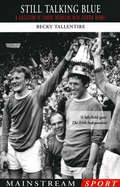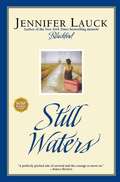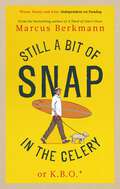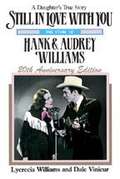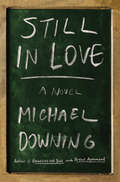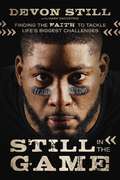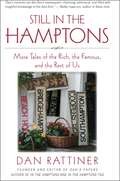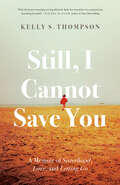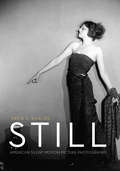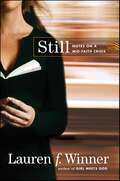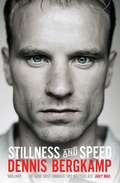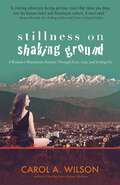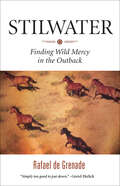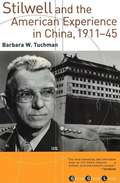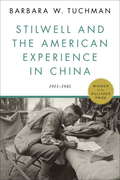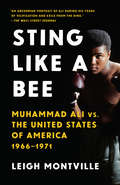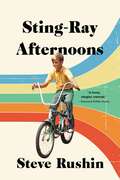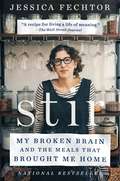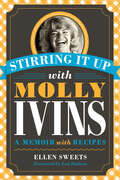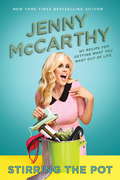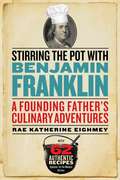- Table View
- List View
Still Talking Blue: A Collection of Candid Interviews with Everton Heroes
by Becky TallentireDo you still curse yourself over the day you met your hero; when instead of asking him the one question that's been nagging you for years, you couldn't utter a word because you were suddenly (and uncharacteristically) struck dumb? Well, curse no more. Still Talking Blue is a unique collection of interviews that will answer everything you wanted to know about your Everton heroes and with none of the unnecessary waffle - because it only asks the relevant questions, as submitted by the fans.Collated via the Internet, disenfranchised Evertonions scattered across the globe proudly display their astounding recall of bygone events and trivia. From Iceland to South Africa, Australia to Israel, long-suffering Bluenoses are finally given the opportunity to ask questions of their heroes and they do so with panache. The book contains in-depth interviews spanning the decades from the '50s, when shorts were long and Dave Hickson's quiff was the envy of Hollywood, right through to Dave Watson's final days at the club. Join us as we endeavour to track down John Bailey's 'big hat' and Gordon West's handbag, and move seamlessly on to more pressing topics such as Kevin Ratcliffe's biggest regret, Mick Lyon's worst injury and Alan Harper's favourite goal. So, if you lie awake at night wondering just what went wrong in the '68 Cup Final, whether Jimmy Gabriel still has his white trench coat, if Barry Horne really does like The Cocteau Twins or how Dave Hickson has managed to hang on to his hair, then unfurrow your brow because the answers all lie within these pages. No Evertonion should be expected to survive without this book.
Still Waters
by Jennifer LauckAnger is a poison ivy in the heart and if it grows unchecked, it covers all the soft spaces where you love and understand and feel joy. There's power in anger, sure, a power that can help you survive. But true wisdom is in knowing when to let it go. In Still Waters, Jennifer Lauck continues the riveting true story begun in her critically acclaimed memoir, Blackbird. Clutching her pink trunk filled with secret treasures, the last relics of a lost childhood, twelve-year-old Jenny steps off a bus in Reno and straight into the wide-open future, where no path is certain except that of her own heart....Separated from her brother, Bryan, and passed from caretaker to caretaker, Jenny endures as she always has: by following the inner compass of the survivor. But when Bryan chooses a shocking, tragic destiny, Jenny must at last confront the secrets, lies, and loneliness that have held her prisoner for years. Embarking on a search for answers, the adult Jenny discovers that the past cannot be locked away forever -- even when unraveling one's own anger and pain seems an impossible feat. Now, in the warmth and understanding of her marriage, in the eyes of her child, and in powerful conversations with a dynamic young priest, Jennifer finds her own miracles. A hardened heart learns to love. A damaged soul finds peace. And life, once merely a matter of survival, becomes rich with the joys of truly living.
Still a Bit of Snap in the Celery: or K.B.O. *Keep Buggering On
by Marcus BerkmannFrom the bestselling author of A Shed of One's Own, a very funny memoir about being 60.Marcus Berkmann's funny, instantly recognisable description of middle-age in A Shed of One's Own struck a chord and turned it into a bestseller. Now he realises he has entered a new age category: the Young-Old.Well, the body continues to provide challenges (every group meeting seems to begin the dreaded 'organ recital'), and the bank balance may not be doing too well either - but it's certainly not all doom and gloom. You have come to terms with your deficiencies and eccentricities (although your partner may not); your Fear of Missing Out has become Joy at Staying In; you have embraced the notion of the Power Nap - and though you're not going to embark on a course of 'mindfulness' you nevertheless recognise if living in the moment also includes walking to the local for a pint with an old friend then you'll sign up for it after all...You could call it 'beerfulness'.'Berkmann is a fine observer of decline. He says what other men would rather not think about, let alone discuss. Another ten years pottering around in his shed and he'll have cracked it' Sunday Times
Still a Bit of Snap in the Celery: or K.B.O. *Keep Buggering On
by Marcus BerkmannFrom the bestselling author of A Shed of One's Own, a very funny memoir about being 60.Marcus Berkmann's funny, instantly recognisable description of middle-age in A Shed of One's Own struck a chord and turned it into a bestseller. Now he realises he has entered a new age category: the Young-Old.Well, the body continues to provide challenges (every group meeting seems to begin the dreaded 'organ recital'), and the bank balance may not be doing too well either - but it's certainly not all doom and gloom. You have come to terms with your deficiencies and eccentricities (although your partner may not); your Fear of Missing Out has become Joy at Staying In; you have embraced the notion of the Power Nap - and though you're not going to embark on a course of 'mindfulness' you nevertheless recognise if living in the moment also includes walking to the local for a pint with an old friend then you'll sign up for it after all...You could call it 'beerfulness'.'Berkmann is a fine observer of decline. He says what other men would rather not think about, let alone discuss. Another ten years pottering around in his shed and he'll have cracked it' Sunday Times
Still in Love with You: A Daughter’s True Story (20th Anniversary Edition)
by Lycrecia Williams Hoover Dale M. VinicurThe only personal and true biography of Hank and Audrey Williams. Drawn from the memories of their closest family members and friends. Written by daughter Lycrecia Williams Hoover with co-author Dale Vinicur.
Still in Love: A Novel
by Michael DowningThis hilarious, sometimes harrowing, and ultimately heartening novel is the companion to the critically acclaimed, national bestseller Perfect Agreement "Beautifully and economically written, and very funny." —Linda Wertheimer, NPR This is your chance to enroll in English 10 at highly rated Hellman College—if you can find a place to sit in the fantastically overcrowded classroom. Mark Sternum, whom readers first met in Downing’s beloved novel Perfect Agreement, is a veteran teacher. Twenty years older, separated for six months from his longtime lover, and desperate to duck the overtures of double–dealing deans above him and disgruntled adjunct faculty below him, Mark has one ambition every day he is on campus—to close the classroom door and leave the world behind. His escape, however, is complicated by his contentious, complicated wrestling match of a relationship with the Professor, the tenured faculty member with whom Mark has co–taught this creative–writing workshop for ten years. The spectacle of their rigorous, academic relationship is a chance for students—all of us—to learn what an amazing arena the classroom can be. Replete with engaging writing exercises, harsh criticism, and contrarian advice, Still in Love is the story of one semester in a college classroom. And it is an urgent reminder that we desperately need classrooms, that those singular, sealed–off–from–the–world sanctuaries are where we learn to love our lives.
Still in the Game: Finding the Faith to Tackle Life’s Biggest Challenges
by Mark Dagostino Devon StillIn an era of cynicism and divisiveness, the tale of this young angel who refused to give up hope combined with the simple act of a young father doing what he ought to do—standing by his ailing daughter through thick and thin—set the social-media world into a whirlwind of positivity. Their inspirational story made the sports world (and the celebrity world alongside it) sit up and smile at the ESPYs. It grabbed the attention of audiences far outside of sports, too, on the Today Show and Good Morning America, and in the pages of People magazine, US Weekly, and more.Everyone seemed to want to know one thing: How did this dad and his little girl find a way to smile through the pain, and to keep fighting even when everything seemed to be going against them? The news media fell in love with the message and told the story the best they could in sound bites and interview clips, and yet the millions of readers and viewers who watched it all unfold in real time are still hungering for more.To Devon Still and his daughter, this wasn’t just a story. This was their test. This was their faith on the line. And this book is their chance to show the world just how powerful faith can be. It’s their chance to show people there’s always reason for hope—and to give them some actionable steps they can take to better their own lives, right now.
Still in the Hamptons: More Tales of the Rich, the Famous, and the Rest of Us (Excelsior Editions)
by Dan RattinerYes, Dan Rattiner is still in the Hamptons, and after fifty-plus years on the eastern end of Long Island, most of them as publisher of the region's free weekly newspaper, Dan's Papers, he still has a lot of stories to tell. Here, offered in his signature dry, observant, and self-deprecating wit, are Rattiner's further encounters with the billionaires and celebrities, the farmers and fishermen, the eccentric artists and ordinary folks, who together make the Hamptons one of the most fashionable, exclusive, and entertaining communities in the United States. As Tom Wolfe once noted, "If a guy says it happened in the Hamptons, and Dan Rattiner doesn't know about it, it didn't."The people he writes about are presented in chronological order from 1959 to today, just as Rattiner lived it and has remembered it. Still in the Hamptons will help you understand what the Hamptons used to be and what it has become, and will provide an entertaining read along the way.Praise for Dan Rattiner"If you pick up the East Hampton Star, you'll learn the who, what, and where. The why and how are more likely found in the pages of Dan's Papers … If you want to understand the crazy quilt of art, sand, money, farmland, literature, golf clubs, divorces, sea spray, and the area's remarkable blend of ego, generosity, and dedication to historic preservation, read Dan's book, In the Hamptons, and its sequel, In the Hamptons Too." — Alec Baldwin, from the Foreword of In the Hamptons Too"Dan Rattiner has been chronicling the people and events of the Hamptons for as long as I've been going there (since the sixties). If anyone wanted some insight into what made this area such an interesting place, all they'd need was a copy of In the Hamptons. It's as close to rubbing elbows as you can get. Enjoy!" — Billy Joel"If there was an honorary mayor of the Hamptons it would have to be Dan Rattiner … a raconteur with a wicked sense of humor and an eye for detail." — Long Island History Journal
Still, I Cannot Save You: A Memoir of Sisterhood, Love, and Letting Go
by Kelly S. ThompsonWith honesty, love, and humour, in this moving memoir, Kelly S. Thompson explores her relationship with her older sister, Meghan. Tested by addiction, abuse, and illness, the sisters&’ relationship crumbles, only to be rebuilt into an everlasting bond.Kelly Thompson and her older sister, Meghan, are proof that sisterhood doesn&’t always equate to friendship. Growing up within a military family, the girls were close despite being temperamental opposites—Kelly, anxious and studious, looked to her big sister for comfort, and Meghan, who battled kidney cancer as a toddler, was gregarious and protective. But as she approached adulthood, Meghan spiralled into a cocaine and opioid addiction, and Kelly&’s relationship with her sister was torn apart. Their paths diverge as they live their own lives, and it is only when Meghan becomes a mother that she and Kelly tentatively face past hurts and reexamine what sisterhood really means. But their reunion is threatened when Meghan receives a shocking new diagnosis on a day that should be one for celebration. Now, as the family reels at the prospect of the biggest loss imaginable, Kelly and Meghan must share all that they can in the time that they have, using their mutual sense of humour to chart a course through the darkest of days. At once funny and heartbreaking, Still, I Cannot Save You is a story about addiction, abuse, and tragedy, but above all, it is a powerful portrait of an enduring love between sisters.
Still: American Silent Motion Picture Photography
by David S. ShieldsThe success of movies like "The Artist" and "Hugo" recreated the wonder and magic of silent film for modern audiences, many of whom might never have experienced a movie without sound. But while the American silent movie was one of the most significant popular art forms of the modern age, it is also one that is largely lost to us, as more than eighty percent of silent films have disappeared, the victims of age, disaster, and neglect. We now know about many of these cinematic masterpieces only from the collections of still portraits and production photographs that were originally created for publicity and reference. Capturing the beauty, horror, and moodiness of silent motion pictures, these images are remarkable pieces of art in their own right. In the first history of still camera work generated by the American silent motion picture industry, David S. Shields chronicles the evolution of silent film aesthetics, glamour, and publicity, and provides unparalleled insight into this influential body of popular imagery. Exploring the work of over sixty camera artists, " Still "recovers the stories of the photographers who descended on early Hollywood and the stars and starlets who sat for them between 1908 and 1928. Focusing on the most culturally influential types of photographs the performer portrait and the scene still Shields follows photographers such as Albert Witzel and W. F. Seely as they devised the poses that newspapers and magazines would bring to Americans, who mimicked the sultry stares and dangerous glances of silent stars. He uncovers scene shots of unprecedented splendor visions that would ignite the popular imagination. And he details how still photographs changed the film industry, whose growing preoccupation with artistry in imagery caused directors and stars to hire celebrated stage photographers and transformed cameramen into bankable names. Reproducing over one hundred and fifty of these gorgeous black-and-white photographs, "Still" brings to life an entire long-lost visual culture that a century later still has the power to enchant. "
Still: Notes on a Mid-Faith Crisis
by Lauren F. WinnerFollowing up her highly acclaimed Girl Meets God, author Lauren F. Winner has written an engrossing reflection of literary grace and spiritual wisdom with Still: Notes on a Mid-Faith Crisis.As she lives through a failed marriage and the loss of her mother, Winner finds her Christian faith slipping away. Through reading religious works and tomes and being counseled by leaders of the church, she learns she must find the courage to trust in God in order to to find His presence.Elegantly written and profound, Still offers reflections on how murky and gray the spiritual life can be while, at the same time, shows us how to see the light we do encounter more clearly.
Stillness and Speed
by Dennis Bergkamp'They have their truth and I have mine,' Dennis Bergkamp. In Stillness and Speed one of football's most enigmatic stars finally opens up about his life and career, revealing the things that motivate and inspire him. Viewed by many as one of the most influential figures in Premier League history, and scorer of the goal that Arsenal fans voted the best in the club's history, Dennis Bergkamp is a true giant of the game. As a youngster, Bergkamp learned from the Dutch master Johan Cruyff. By the time the pupil was ready to graduate from Ajax and move abroad, he was ready to spread the word, but in Italy he found few willing listeners. It was only when he moved to Arsenal and linked up with Arsène Wenger that he met someone else who shared his vision for football's possibilities. Bergkamp became central to everything the club did: now he had become the teacher, their creative genius, and the one who inspired some of the wayward old guard to new heights, helping them to seven major trophies. Few footballers' books make you think anew, but in Stillness and Speed Bergkamp presents a new vision for the game and how it might be played. He was a player like no other; his story is told like no other. It is a book that will inspire all football fans everywhere, whatever their allegiance.
Stillness and Speed: My Story
by Dennis BergkampIn Stillness and Speed, one of football's most enigmatic stars finally opens up about his life and career, revealing the things that motivate and inspire him. Viewed by many as one of the most influential figures in Premier League history, and scorer of the goal that Arsenal fans voted the best in the club's history, Dennis Bergkamp is a true giant of the game. As a youngster, Bergkamp learned from the Dutch master Johan Cruyff. By the time the pupil was ready to graduate from Ajax and move abroad, he was ready to spread the word, but in Italy he found few willing listeners. It was only when he moved to Arsenal and linked up with Arsene Wenger that he met someone else who shared his vision for football's possibilities. Bergkamp became central to everything the club did: now he had become the teacher, their creative genius, and the one who inspired some of the wayward old guard to new heights, helping them to seven major trophies. Few footballers' books make you think anew, but in Stillness and Speed Bergkamp presents a new vision for the game and how it might be played. He was a player like no other; his story is told like no other. It is a book that will inspire football fans everywhere, whatever their allegiance.
Stillness on Shaking Ground: A Woman's Himalayan Journey Through Love, Loss, And Letting Go
by Carol A. WilsonDetermined to hang prayer flags at Mt. Everest Base Camp, Olivia trekked through Tibet while under the scrutiny of Communist China. She survived earthquakes, landslides, and a middle-of-the-night hijacking while enroute to a remote village in Nepal. Confronted with her own sense of meaning, she went toe-to-toe with the suffering, challenges, and decisions that all beings face, which included the capacity to love and let go.
Stilwater: Finding Wild Mercy in the Outback
by Rafael de GrenadeIn this “rhapsodic [and] stirring” nature memoir, an American woman recounts a season of herding cattle in the Australian Outback (Kirkus).Rafael de Grenade was thirteen years old when she began working on a rough-country mountain ranch in Arizona. But when she read about cattlemen working the far edges of the Australian outback, it sparked a dream far wilder than anything she had ever known. A little over a decade later she arrived on Stilwater Station with two shirts, two pairs of jeans, cowboy boots, and some doubt that she would ever go home.Inundated by monsoon floods in the winter, baked dry in the summer, and filled with deadly animals, Stilwater was an unlikely home for a cattle operation. But in the wilderness beyond the station roamed tens of thousands of cows, many entirely feral from long neglect. Rafael has been hired, along with a ragged crew of ringers and stockmen, to bring them in. Over a season they use helicopters, motorcycles, bullcatcher jeeps, horses, ropes, and knives to win Stilwater Station back from the wild, to say nothing of their intuition, strength, muscle, and wit.
Stilwell and the American Experience in China, 1911-45
by Barbara W. TuchmanBarbara W. Tuchman uses the life of Joseph Stilwell, the military attache to China in 1935-39 and commander of United States forces and allied chief of staff to Chiang Kai-shek in 1942-44, to explore the history of China from the revolution of 1911 to the turmoil of World War II, when China's Nationalist government faced attack from Japanese invaders and Communist insurgents. Her story is an account of both American relations with China and the experiences of one of our men on the ground. In the cantankerous but level-headed "Vinegar Joe," Tuchman found a subject who allowed her to perform, in the words of The National Review, "one of the historian's most envied magic acts: conjoining a fine biography of a man with a fascinating epic story."<P><P> Pulitzer Prize Winner
Stilwell and the American Experience in China: 1911-1945
by Barbara W. TuchmanBarbara W. Tuchman won her second Pulitzer Prize for this nonfiction masterpiece—an authoritative work of history that recounts the birth of modern China through the eyes of one extraordinary American. General Joseph W. Stilwell was a man who loved China deeply and knew its people as few Americans ever have. Barbara W. Tuchman’s groundbreaking narrative follows Stilwell from the time he arrived in China during the Revolution of 1911, through his tours of duty in Peking and Tientsin in the 1920s and ’30s, to his return as theater commander in World War II, when the Nationalist government faced attack from both Japanese invaders and Communist insurgents. Peopled by warlords, ambassadors, and missionaries, this classic biography of the cantankerous but level-headed “Vinegar Joe” sparkles with Tuchman’s genius for animating the people who shaped history. Praise for Stilwell and the American Experience in China “Tuchman’s best book . . . so large in scope, so crammed with information, so clear in exposition, so assured in tone that one is tempted to say it is not a book but an education.”—The New Yorker “The most interesting and informative book on U.S.–China relations . . . a brilliant, lucid and authentic account.”—The Nation “A fantastic and complex story finely told.”—The New York Times Book ReviewFrom the Trade Paperback edition.
Sting Like a Bee: Muhammad Ali vs. the United States of America, 1966-1971
by Leigh MontvilleAn insightful portrait of Muhammad Ali from the New York Times bestselling author of At the Altar of Speed and The Big Bam. It centers on the cultural and political implications of Ali's refusal of service in the military—and the key moments in a life that was as high profile and transformative as any in the twentieth century. With the death of Muhammad Ali in June, 2016, the media and America in general have remembered a hero, a heavyweight champion, an Olympic gold medalist, an icon, and a man who represents the sheer greatness of America. New York Times bestselling author Leigh Montville goes deeper, with a fascinating chronicle of a story that has been largely untold. Muhammad Ali, in the late 1960s, was young, successful, brash, and hugely admired—but with some reservations. He was bombastic and cocky in a way that captured the imagination of America, but also drew its detractors. He was a bold young African American in an era when few people were as outspoken. He renounced his name—Cassius Clay—as being his 'slave name,' and joined the Nation of Islam, renaming himself Muhammad Ali. And finally in 1966, after being drafted, he refused to join the military for religious and conscientious reasons, triggering a fight that was larger than any of his bouts in the ring. What followed was a period of legal battles, of cultural obsession, and in some ways of being the very embodiment of the civil rights movement located in the heart of one man. Muhammad Ali was the tip of the arrow, and Leigh Montville brilliantly assembles all the boxing, the charisma, the cultural and political shifting tides, and ultimately the enormous waft of entertainment that always surrounded Ali. Muhammed Ali vs. the United States of America is an important and incredibly engaging book.
Sting-Ray Afternoons: A Memoir
by Steve RushinA wild and bittersweet memoir of a classic '70s childhoodIt's a story of the 1970s. Of a road trip in a wood-paneled station wagon, with the kids in the way-back, singing along to the Steve Miller Band. <P><P>Brothers waking up early on Saturday mornings for five consecutive hours of cartoons and advertising jingles that they'll be humming all day. <P>A father-one of 3M's greatest and last eight-track-salesman fathers-traveling across the country on the brand-new Boeing 747, providing for his family but wanting nothing more than to get home.It's Steve Rushin's story: of growing up within a '70s landscape populated with Bic pens, Mr. Clean and Scrubbing Bubbles, lightsabers and those oh-so-coveted Schwinn Sting-Ray bikes. <P>Sting-Ray Afternoons paints an utterly fond, psychedelically vibrant, laugh-out-loud-funny portrait of an exuberant decade. With sidesplitting commentary, Rushin creates a vivid picture of a decade of wild youth, cultural rebirth, and the meaning of parental, brotherly, sisterly, whole lotta love.
Stir
by Jessica FechtorAn exquisite memoir about how food connects us to ourselves, our lives, and each other. At 28, Jessica Fechtor was happily immersed in graduate school and her young marriage, and thinking about starting a family. Then one day, she went for a run and an aneurysm burst in her brain. She nearly died. She lost her sense of smell, the sight in her left eye, and was forced to the sidelines of the life she loved.Jessica's journey to recovery began in the kitchen as soon as she was able to stand at the stovetop and stir. There, she drew strength from the restorative power of cooking and baking. Written with intelligence, humor, and warmth, Stir is a heartfelt examination of what it means to nourish and be nourished. Woven throughout the narrative are 27 recipes for dishes that comfort and delight. For readers of M.F.K.Fisher, Molly Wizenberg, and Tamar Adler, as well as Oliver Sacks, Jill Bolte Taylor, and Susannah Cahalan, Stir is sure to inspire, and send you straight to the kitchen.From the Hardcover edition.
Stirring It Up with Molly Ivins: A Memoir with Recipes
by Ellen SweetsYou probably knew Molly Ivins as an unabashed civil libertarian who used her rapier wit and good ole Texas horse sense to excoriate political figures she deemed unworthy of our trust and respect. But did you also know that Molly was one helluva cook? And we’re not just talking chili and chicken-fried steak, either. Molly Ivins honed her culinary skills on visits to France—often returning with perfected techniques for saumon en papillote or delectable clafouti aux cerises. Friends who had the privilege of sharing Molly’s table got not only a heaping helping of her insights into the political shenanigans of the day, but also a mouth-watering meal, prepared from scratch with the finest ingredients and assembled with the same meticulous attention to detail that Molly devoted to skewering a political recalcitrant. In Stirring It Up with Molly Ivins, her longtime friend, fellow reporter, and frequent sous-chef Ellen Sweets takes us into the kitchen with Molly and introduces us to the private woman behind the public figure. She serves up her own and others’ favorite stories about Ivins as she recalls the fabulous meals they shared, complete with recipes for thirty-five of Molly’s signature dishes. These stories reveal a woman who was even more fascinating and complex than the “professional Texan” she enjoyed playing in public. Friends who ate with Molly knew a cultured woman who was a fluent French speaker, voracious reader, rugged outdoors aficionado, music lover, loyal and loving friend, and surrogate mom to many of her friends’ children, as well as to her super-spoiled poodle. They also came to revere the courageous woman who refused to let cancer stop her from doing what she wanted, when she wanted. This is the Molly you’ll be delighted to meet in Stirring It Up with Molly Ivins.
Stirring It Up with Molly Ivins: A Memoir with Recipes
by Ellen SweetsYou probably knew Molly Ivins as an unabashed civil libertarian who used her rapier wit and good ole Texas horse sense to excoriate political figures she deemed unworthy of our trust and respect. But did you also know that Molly was one helluva cook? And we’re not just talking chili and chicken-fried steak, either. Molly Ivins honed her culinary skills on visits to France—often returning with perfected techniques for saumon en papillote or delectable clafouti aux cerises. Friends who had the privilege of sharing Molly’s table got not only a heaping helping of her insights into the political shenanigans of the day, but also a mouth-watering meal, prepared from scratch with the finest ingredients and assembled with the same meticulous attention to detail that Molly devoted to skewering a political recalcitrant. In Stirring It Up with Molly Ivins, her longtime friend, fellow reporter, and frequent sous-chef Ellen Sweets takes us into the kitchen with Molly and introduces us to the private woman behind the public figure. She serves up her own and others’ favorite stories about Ivins as she recalls the fabulous meals they shared, complete with recipes for thirty-five of Molly’s signature dishes. These stories reveal a woman who was even more fascinating and complex than the “professional Texan” she enjoyed playing in public. Friends who ate with Molly knew a cultured woman who was a fluent French speaker, voracious reader, rugged outdoors aficionado, music lover, loyal and loving friend, and surrogate mom to many of her friends’ children, as well as to her super-spoiled poodle. They also came to revere the courageous woman who refused to let cancer stop her from doing what she wanted, when she wanted. This is the Molly you’ll be delighted to meet in Stirring It Up with Molly Ivins.
Stirring the Pot
by Jenny MccarthyThe View host and New York Times bestselling author Jenny McCarthy is like your favorite friend: honest, open, and oh-so-funny. She also speaks her mind and says what the rest of us are thinking, a characteristic that has won her millions of fans no matter how much she "stirs the pot." Combining the secrets of her hard-won wisdom, witty observations, revealing notes to herself (including ridiculously wishful wish lists), and tales of both her best and most embarrassing moments, Stirring the Pot is McCarthy's recipe for getting what you want out of life. From her wacky experiences in show business to her screwball forays into healing "therapies," from her frontline reporting of single motherhood in midlife to a goofy attempt to reclaim her last name from Joe McCarthy, here are outrageous musings from the roller coaster life of everyone's favorite professional blonde. With a winning mix of storytelling, sisterly advice, sex appeal, and self-deprecation, Stirring the Pot shows us how a pinch of conviction (aka hardheadedness), a dollop of flexibility (being okay with Plan B or even C), and endless faith (in yourself, in your wildest fantasies, and in the general goodness of others) can mix to create the life of your dreams.
Stirring the Pot with Benjamin Franklin: A Founding Father's Culinary Adventures
by Rae Katherine EighmeyIn this remarkable work, Rae Katherine Eighmey presents Franklin's delight and experimentation with food throughout his life. At age sixteen, he began dabbling in vegetarianism. In his early twenties, citing the health benefits of water over alcohol, he convinced his printing-press colleagues to abandon their traditional breakfast of beer and bread for "water gruel," a kind of tasty porridge he enjoyed. Franklin is known for his scientific discoveries, including electricity and the lightning rod, and his curiosity and logical mind extended to the kitchen. He even conducted an electrical experiment to try to cook a turkey and installed a state-of-the-art oven for his beloved wife Deborah. Later in life, on his diplomatic missions--he lived fifteen years in England and nine in France--Franklin ate like a local. Eighmey discovers the meals served at his London home-away-from-home and analyzes his account books from Passy, France, for insights to his farm-to-fork diet there. Yet he also longed for American foods; Deborah, sent over favorites including cranberries, which amazed his London kitchen staff. He saw food as key to understanding the developing culture of the United States, penning essays presenting maize as the defining grain of America. Stirring the Pot with Benjamin Franklin conveys all of Franklin's culinary adventures, demonstrating that Franklin's love of food shaped not only his life but also the character of the young nation he helped build.

